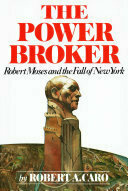Finished reading: Vita Contemplativa by Byung-Chul Han 📚
'What man needs is silence & warmth; what he is given is an icy pandemonium.' ~Simone Weil
Currently reading: King Lear by William Shakespeare 📚
Finished reading: Concerning the Future of Souls by Joy Williams. Subtitle: 99 Stories of Azrael.
Holy smokes this is a cool book. Vintage Williams, wild & strange & unforgettable. 📚
Finished reading: Lord Emsworth and Others by P. G. Wodehouse 📚
Currently reading: Collected Fictions by Jorge Luis Borges 📚
Currently reading: Concerning the Future of Souls by Joy Williams 📚
Currently reading: The Power Broker by Robert A. Caro.
It’s time. Let’s do this. 📚
Currently reading: All Things Are Full of Gods by David Bentley Hart 📚
Finished reading: Middlemarch by George Eliot 📚
Currently reading: Entangled Life by Merlin Sheldrake 📚
Currently reading: Range by David Epstein 📚
Currently reading: The Artist’s Way by Julia Cameron.
Oft recommended; I’m reading it & going through all the exercises with my mother. Grateful she suggested this idea! 📚
Luke Burgis offers a reading list for creators & entrepreneurs.
Personally, I’d replace Mill & Emerson with Middlemarch & any Jane Austen. And add McGilchrist as the third book for this century, along with some poetry.
But it’s an excellent set of books nonetheless! 📚
Finished reading: When Breath Becomes Air by Paul Kalanithi.
What a remarkable book. I love academic memoirs, & this fits within that genre—but pushes well beyond it as well. It’s also a profound meditation on cancer, mortality, healthcare, poetry, faith, love, & family. Highly recommended. 📚
Currently reading: Middlemarch by George Eliot.
An old favorite. Profound from the first paragraph. 📚
Finished reading: Moonbound by Robin Sloan.
So great! Handed it off to my daughter—she’s 11; I’m sure she’ll enjoy it just as much. 📚
Finished reading: Night Train by A. L. Snijders.
Wonderful microstories, translated by Lydia Davis. Highly recommended. 📚
Currently reading: When Breath Becomes Air by Paul Kalanithi 📚
Currently reading: Moonbound by Robin Sloan 📚
Want to read: Entangled Life by Merlin Sheldrake 📚
Finished reading: Cahokia Jazz by Francis Spufford.
This book is incredible—it connects many of my interests: jazz, counterfactual American history, religion, noir; the characters are wonderfully unique; the plot is gripping. Highly recommended! 📚
Currently reading: Night Train by A. L. Snijders.
Very short stories translated from Dutch by Lydia Davis (who herself writes brilliant microfiction). 📚
Currently reading: The Shield of Achilles by W. H. Auden 📚
Currently reading: Cahokia Jazz by Francis Spufford 📚
Finished reading: The Dark Forest by Cixin Liu 📚
